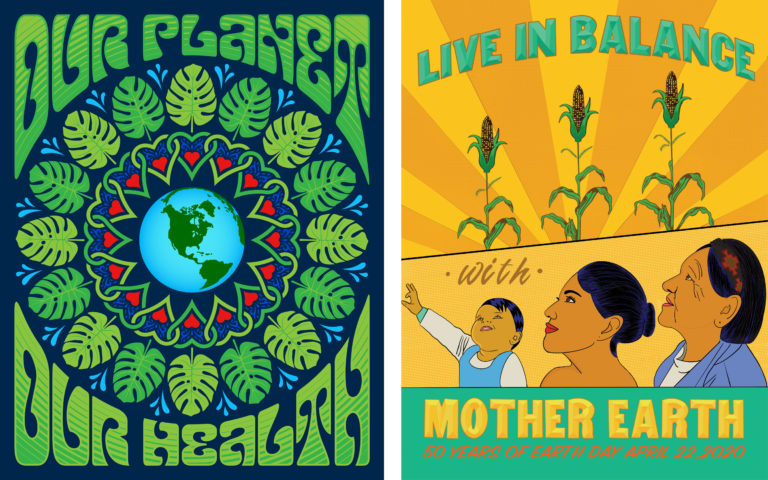Today marks the 50th anniversary of Earth Day, the planet’s largest civic event, and one which launched the environmental movement as we know it today. This year, under the shadow of Coronavirus, climate activists have resolved to take the strike online. For the next three days, the Earth Day Network will flood the digital landscape with global conversations, performances, video teach-ins and more — all in the name of climate action.
APART, BUT CONNECTED
The centerpiece of this year’s programme is a non-stop 72-hour livestream featuring messages and calls to action from a wide range of artists, performers and thought-leaders. The roster includes high-profile movers and shakers like Al Gore, Bill McKibben and Stella McCartney. The event will harness the power of collective, digital action to promote three key themes: amplifying the voice of indigenous and youth leaders, calling for divestment strategies and advocating for political engagement. According to Dennis Hayes, who organised the first ever Earth Day in 1970, while the logistics have changed, the goal remains: to build “an irresistible worldwide force to demand a global Green New Deal and, ultimately, solve the climate crisis.”
Want to join the conversation? Visit their website here. If you want to participate in something closer to home, lots of youth organizers, climate justice activists and frontline communities are also hosting local livestreams for Earth Day. Check out the initiatives near you, and support them from the safety of your own home. You can also help by sharing Earth Day’s 50th Anniversary posters, which were designed by 7 different artists from around the globe.


OUR PLANET, OUR HEALTH
As turbulent as the last few weeks have been, the overwhelming tone of this year’s campaign is one of optimism. After all, this moment of crisis also provides an opportunity for us to rebuild a better future for ourselves and the planet. “The coronavirus pandemic does not shut us down. Instead, it reminds us of what’s at stake,” explained the organizers of the event. “If we don’t demand change now, our current state will become the new normal — a world where pandemics and extreme weather events span the globe, leaving already marginalized and vulnerable communities even more at risk.” Clearly, as we move slowly towards an exit strategy for one crisis, we must not forget about the other.
